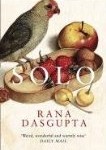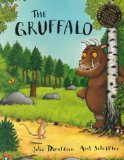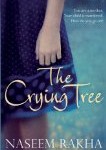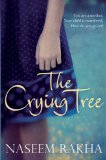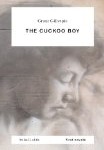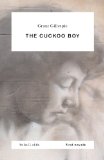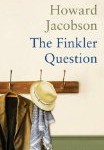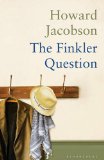This month my oldest son is 5-years-old. To celebrate I thought I’d share the books he has most enjoyed in the last year.
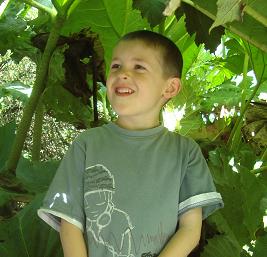 Adam owns almost as many books as me and he also gets books from the library, so in the past year we have probably read several hundred picture books together. Most go straight back on the shelves, but a few are memorable and come out over-and-over again. Here are the books we have most enjoyed reading in the last year:
Adam owns almost as many books as me and he also gets books from the library, so in the past year we have probably read several hundred picture books together. Most go straight back on the shelves, but a few are memorable and come out over-and-over again. Here are the books we have most enjoyed reading in the last year:
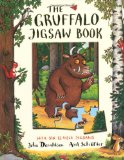
The Gruffalo Jigsaw Book by Julia Donaldson
The Gruffalo is the best children’s story I’ve found and the The Gruffalo DVD will entertain your whole family. I think this jigsaw version is the most beautiful edition, although I prefer it if they don’t attempt to do the jigsaws!
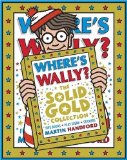
Where’s Wally? The Solid Gold Collection by Martin Handford
Some four-year-olds get frustrated by these books as I think they are aimed at older children, but my son loves spending time examining the beautifully illustrated pages and gets enormous satisfaction whenever he finds Wally. I think it is a great way to teach patience – if you can get them to sit still enough to find their first Wally!
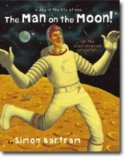
Man on the Moon by Simon Bartram
A lovely story about a man who works on the moon. He doesn’t believe in aliens, but children love spotting the tiny space creatures hiding on each page!
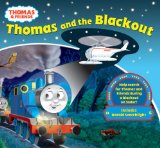
Thomas and the Blackout
There are lots of different Thomas books available (you’ll probably find yourself reading the entire series anyway!) and so I thought I’d highlight this lesser known book. Thomas and the Blackout features special plastic pages which can only be viewed using Harold’s searchlight. Children love moving his light to reveal the pictures on each page.
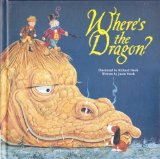
Where’s the Dragon? by Richard Hook
This book is beautifully illustrated, with dragons hiding in the scenery of each page. Children love the way that the grandfather fails to notice the dragons all around him!
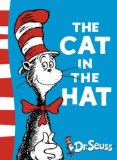
The Cat in the Hat by Dr Seuss
First published in 1957 it is easy to see why this book has stood the test of time. The simple words are great for those just starting to read, whilst the funny story will appeal to everyone. Fantastic!
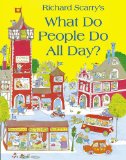
What Do People Do All Day? by Richard Scarry
Each page of this book is packed with detailed illustrations of various workplaces. Children spend ages studying the pictures and then ask great questions about the numerous jobs adults do. A great discussion starter.
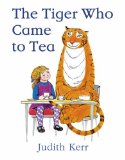
The Tiger Who Came to Tea by Judith Kerr
A classic book that young children find very entertaining. I did get a few questions about how a tiger could drink all the water in the taps, but it is probably best not to mention that!
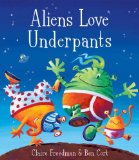
Aliens Love Underpants! by Claire Freedman
I’m afraid that boys love talking about bottoms, but this means that they love this slightly naughty book. It is a very funny story which includes every kind of underwear you can imagine!
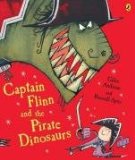
Captain Flinn and the Pirate Dinosaurs by Giles Andreae
Pirates and dinosaurs combine with vibrant illustrations to grab the attention of little boys. The whole series is good, but I think this one is the best.

Harry and the Dinosaurs Collection by Ian Whybrow
Boys seem to have a fascination with dinosaurs and this is the best series I’ve found – it even taught me a few dinosaur names!
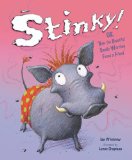
Stinky! by Ian Whybrow
This is such a lovely story. It is all about how a smelly warthog finally found a friend. The rhyming makes it easy to read and children find it very funny.
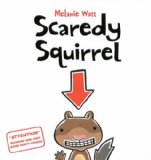
Scaredy Squirrel by Melanie Watt
A wonderful book that encourages children to try new things. The rest of the series is great too.
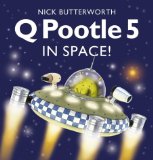
Q Pootle 5 in Space by Nick Butterworth
A book in which dangerous aliens are persuaded to be blown up like balloons which then fart off into space – the sort of thing young boys find very funny!
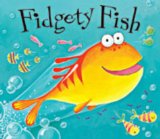
Fidgety Fish by Ruth Galloway
A sweet story about an inquisitive little fish. Great for learning about all the different sea creatures too!

Calm Down Boris! by Sam Lloyd
A book and a hand puppet in one. What’s not to love?!
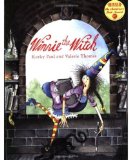
Winnie the Witch by Valerie Thomas
A children’s classic that you shouldn’t miss out on. The whole series is great, but the original is the best. A fantastic story which is beautifully illustrated. Wonderful!
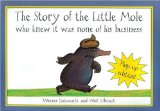
The Story of the Little Mole – Plop-up Edition by Werner Holzwarth
I’m afraid that young boys often have an obsession with poo. If you’d like to encourage this (or want to an amusing present!) then this book is perfect! It compares the shape and size of various animal poo, leading to interesting?! inspections of any poo you might find when you’re out and about.
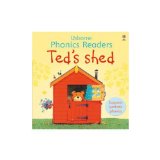
Usborne Phonics Readers – 12 book box set by Phil Roxbee Cox
This is a fantastic set of books for children who are just starting to read. They get enormous satisfaction from reading their first words and children who can’t quite manage the words can still enjoy looking for the Usborne duck on each page. If you decide to only buy one book then I recommend Ted’s Shed – it is the easiest to read and I think it has the cutest story.
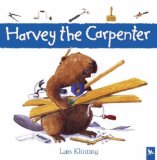
Harvey the Carpenter by Lars Klinting
A fantastic series of books that teach children all about different jobs. If you’re child is a fan of DIY then this is for you!
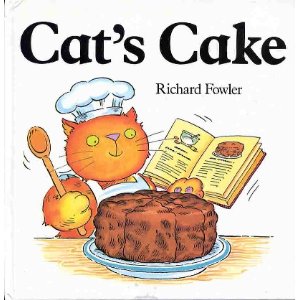
Cat’s Cake by Richard Fowler
Cat bakes a cake, but all the other animals keep adding their favourite food to the mixture, resulting in a disgusting cake that only goat will eat! Children find this one really funny and it helps to teach them about which foods do taste nice together.
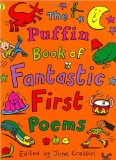
The Puffin Book of Fantastic First Poems
Lots of silly rhymes and poems to entertain young children. I guarantee they will be repeating them to you after a few days.
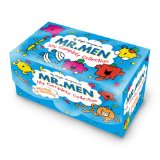
Mr. Men: My Complete Collection by Roger Hargreaves
Four-year-olds are just old enough to begin appreciating the Mr. Men stories. Some of the more complex ideas go over their heads, but I think it is worth investing in this classic series now, before they become too old – you wouldn’t want to miss out on reading these wonderful stories to your children.
Can you recommend any other books I’ve missed?
Which of these does your 4-year-old enjoy most?
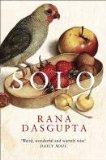
Winner of 2010 Commonwealth Writers’ Prize
![]()
